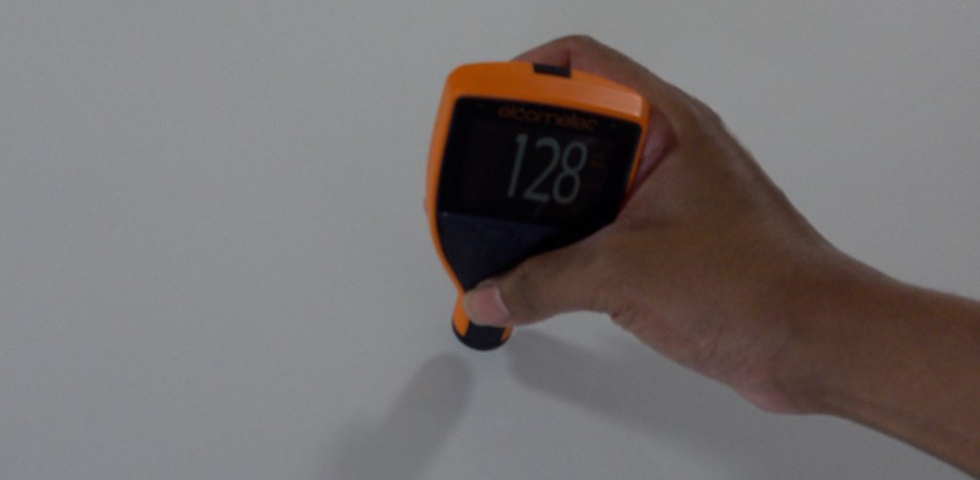I have built a certain reputation as an expert in polishing paint as a skilled specialist in paint correction, removing swirls, scratches, etched water spots, and more. I am extremely qualified to critique the ‘internet’ critics. I believe it is disingenuous for people to point out flaws on someone else’s social media post and critique detailers professionalism over paint defects. The visible defect removal that most people see when a flashlight is directed at the paint is a small part of the story with paint correction detailing. Professionally or even as an enthusiast, there are so many other things to focus on of great importance.
The Elcometer (pictured below) played a part in the inspiration for this article. This paint thickness gauge is used to take measurements of the paint’s thickness.
Safety In Polishing
Interviewing the owner, inspecting the vehicle, and measuring paint with a paint thickness gauge is all part of my professional detailing before the polishing process. When you are polishing, you are leveling the top layer (aka clear coat) of your paint. This layer contributes to the reflectivity of your paint. But what we are polishing is also the primary form of ultraviolet protection for your paint which is only microns in thickness.
Quite a number of professionals have dismissed the paint thickness gauge due to it does not produce perfect measurements and (unless choosing the most premium option) is unable to measure individual paint layers. This argument is the equivalent to forgoing healthier eating or regular exercise since it will not guarantee the prevention of serious illness. Also knowing the history and age of the car is important. The paint on daily drivers has been getting thinner the past several years.
Aside from not knowing the cost/level of service or how that vehicle is going to be realistically cared for, the person who demands strangers on the internet polish to perfection neglects to mention the consequences of excessive polishing. The short- and long-term consequences of peer pressure can be severe.
Obvious Defect Removal And Refinement
Correction without refinement whether in the single step or with a refinement step is not proper correction. You may have accomplished what the customer says he or she wanted and made it more budget friendly and profitable for you, but you did not accomplish as the (expert professional) what they really wanted. If the paint is hazy from too aggressive of a single step combination, there is likely marginal improvement in the paint’s appearance. That second polishing (refinement) step is very underrated.
The Benefit Of Some Polishing
Many people say their paint is perfect or close to, which is not the case, consequentially rationalizing there is not a need for polishing. Fixing what you cannot see usually is the difference between a below average detail and a great detail. If you think I am wrong ask what is happening when someone says, “a good wax.” A moderate level of polishing would accomplish more even if you did not remove all or even a majority of the swirls. Have you read the online feedback from customers who went to detailing businesses known for higher end services? A common complement is, “it looks better than new” or “better than showroom floor.” That is in part the effect of paint correction.
